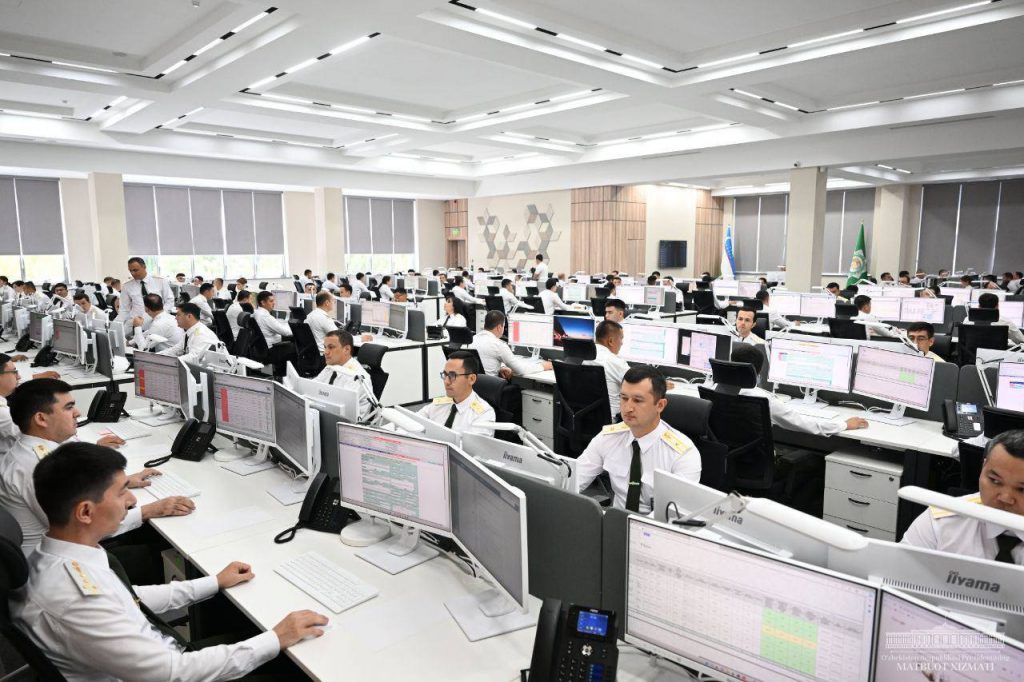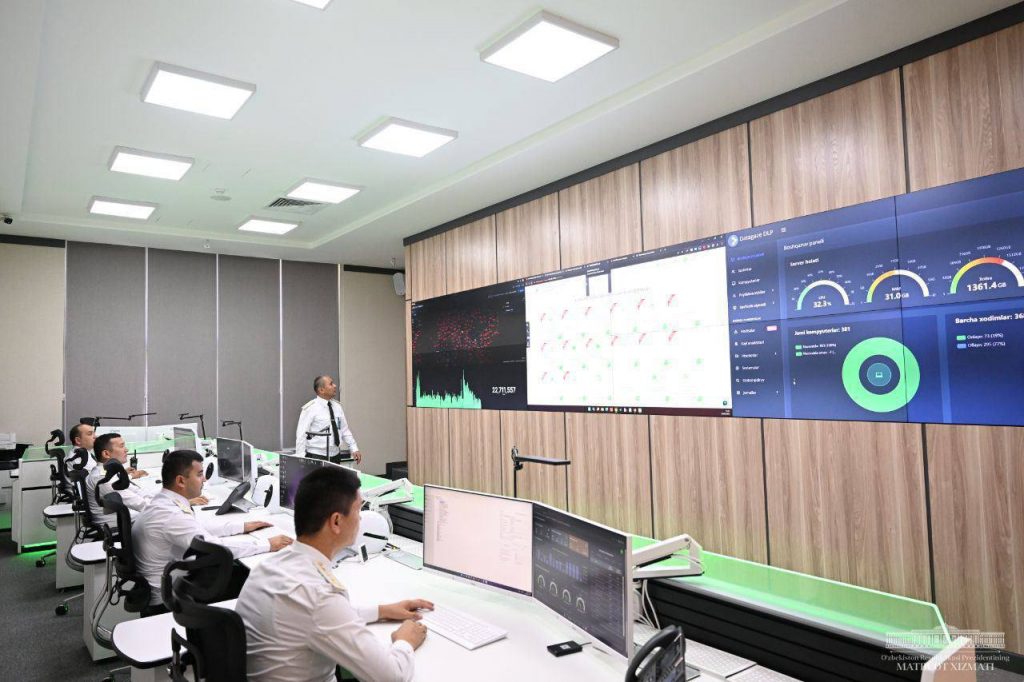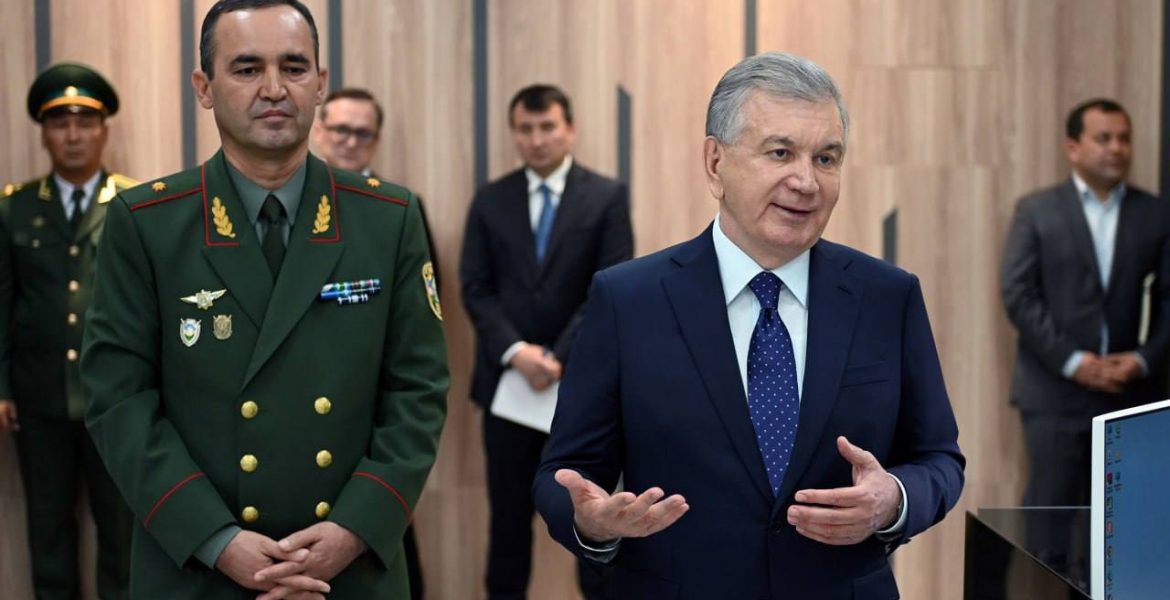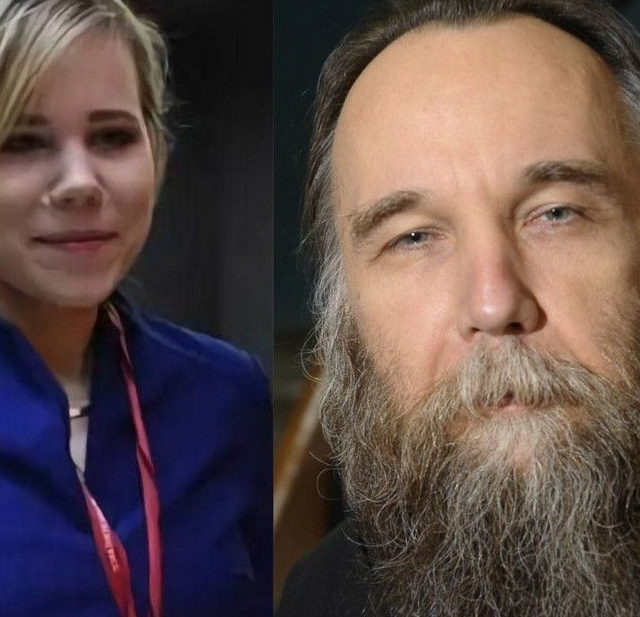On the eve of Independence Day, 29 August 2023, President of the Republic of Uzbekistan Shavkat Mirziyoyev visited the Customs Clearance Centre under the Customs Committee.
At a meeting chaired by President Shavkat Mirziyoyev on 17 February 2022, priority tasks were set to further improve customs administration, develop the customs service and transform it into a corruption-free system.
On 27 April 2022, the Presidential Decree “On Additional Measures for Further Improvement of Customs Administration” was adopted and practical work aimed at further reforming the sphere started.
The Customs Clearance Centre was established to provide high-quality customs services to participants of foreign economic activity. The complex includes a data processing centre, a remote electronic declaration post, a call centre, targeting and risk management departments.
In organising the work of the Customs Clearance Centre, the proposals of entrepreneurs and business community were also taken into account.
At the centralised remote electronic declaration post at the initial stage the processes of operative registration of cargo customs declarations submitted remotely to the customs by entrepreneurs of Tashkent will be carried out, and in the future it is planned to cover all customs procedures in Uzbekistan. In particular, 50 per cent (3,000 per day) of the declarations filed throughout the country are processed through this post.
The goods are cleared remotely by 116 customs officers without any physical contact with entrepreneurs.

Providing a uniform approach to the clearance of goods is aimed at reducing costs for entrepreneurs.
A modern “Call Centre” has been created to receive all applications of citizens and entrepreneurs online via the “hotline” 11-08 and the website of the Customs Committee as well as to evaluate the response.
The centre is equipped with modern facilities and has the capacity to receive more than 600 requests per day and promptly solve problems.
Also, based on the experience of the United States, the United Arab Emirates, Republic of Korea, Israel, Turkiye, Azerbaijan and Russia, a Targeting and Risk Management centre has been established to monitor customs objects in real time, provide them with analytical information, and further strengthen inter-agency cooperation and international data exchange.
At the centre, operational structures analyse data from 50 customs information systems and 3 information systems of the World Customs Organisation, as well as data from more than 30 agencies and customs offices of foreign countries, assess risks, and remotely control the activities of all customs posts.
At the same time, a Data Processing Centre and modern cybersecurity and telecommunications facilities have been set up to store and analyse big data and detect cyberattacks at an early stage.
The centre is equipped with modern servers, powerful generators and fire safety equipment, ten times greater than the existing capabilities, which will increase the speed of communication channels by 5 times and reduce the processing time by 2 times in 160 facilities.
The new phase of customs cooperation with the World Customs Organisation has further improved the Customs Committee’s Central Customs Laboratory, shortened examination processes, and recognised test results at the regional level.

Uzbekistan is the tenth country to receive the status of the World Customs Organisation’s Regional Customs Laboratory.
The progress made in the digitalisation of the customs sector is yielding positive results.
Through on-site improvements and digitalisation of the clearance process, customs clearance times have been reduced by an average of two times.
In general, as a result of the digitalisation of the industry in accordance with the Presidential Decree, customs clearance time has been reduced by two times on average. For example, while in 2017 it took 5 hours and 42 minutes to clear exports, in 2023 this time is 30 minutes.
80 per cent of imports and 89 per cent of exports are cleared under simplified procedures. Automatic processing of customs cargo declarations using artificial intelligence is also on the rise.
Automatic processing of customs cargo declarations using artificial intelligence has reached 15 per cent, and the figure is 85 per cent in exports.
“The conditions created here are nothing short of encouraging. But digitalisation is a process that does not stand still. There are still many tasks to be solved in the sphere. Therefore, it is necessary to constantly work on improving the convenience of services. Entrepreneurs should assess the system’s performance”, Shavkat Mirziyoyev said.
Instructions have been given to provide domestic entrepreneurs with proposals based on analysing the structure of imports and expanding processing in the customs territory. The task has been set to turn customs into a corruption-free sphere by improving material and social security of employees.

This official Uzbekistan Government Report has been written and produced by the Customs Committee of the Republic of Uzbekistan.




